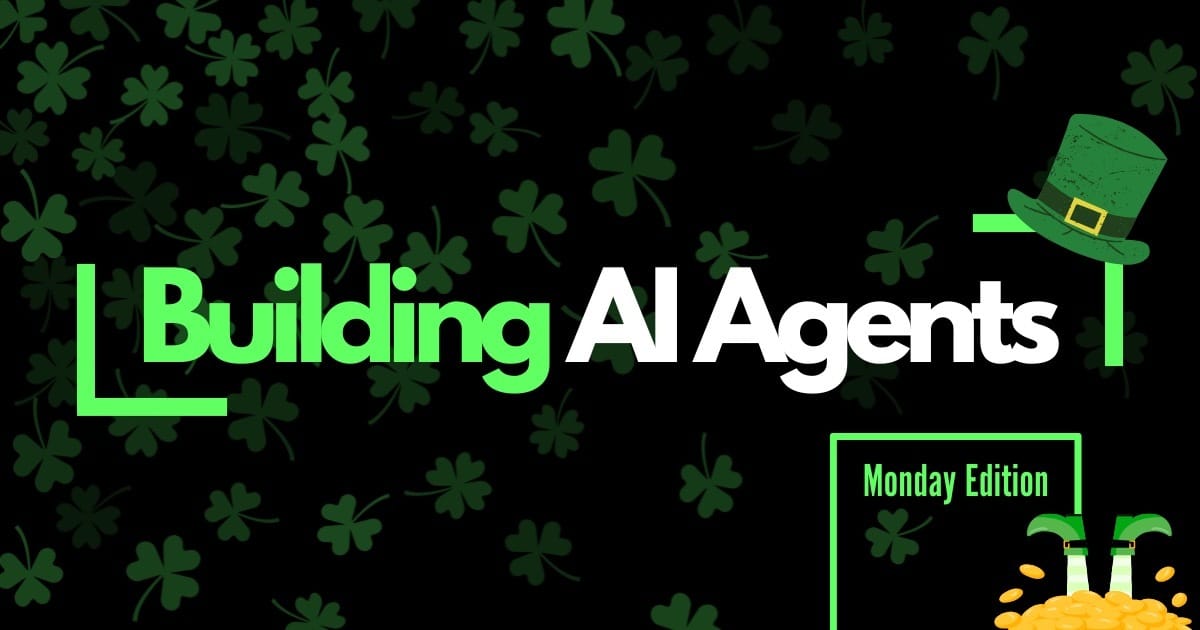- Building AI Agents
- Posts
- MCP: the new HTTP for AI agents
MCP: the new HTTP for AI agents
Plus: how to speed up your agents, everything you need to know about OpenAI's new Agents SDK, and more

Welcome back to Building AI Agents, your biweekly guide to everything new in the AI agent field!
ANUS is a powerful open-source AI agent framework for automating complex tasks with natural language.
-> No invite code unlike MANUS.
— GitHub Projects Community (@GithubProjects)
6:08 PM • Mar 13, 2025
Yes, apparently this is a very real effort to create an open-source alternative to the viral Manus agent. Some might say this is a crappy publicity stunt, butt frankly I applaud its creators for finding a backdoor way to bring attention to their project.
Never be afraid to be a little cheeky.
In today’s issue…
Anthropic’s Model Context Protocol takes over
A state-of-the-art new model for enterprise agents
How to speed up your agents
A free course on agent memory with LangGraph
…and more
🔍 SPOTLIGHT

Created by the author using Dall-E 3
Like language models, people confused by the sudden virality of “MCP” over the last few weeks may require some context. Luckily, there’s a protocol for that.
Anthropic’s Model Context Protocol (MCP) is an open communication standard that connects LLMs to tools and data sources, allowing builders of these resources to set up servers that any AI agent can access. Rather than being compatible with only a single agentic system, these tools can then act as modular components that can be repurposed anywhere. For instance, a web browsing tool can be fitted with an MCP server and accessed by an unlimited number of different agents for their own purposes.
At every stage of the current internet’s growth, standardized communication protocols have been a critical enabling force. During its early days as ARPANET in the 1970s, the development of the Transmission Control Protocol/Internet Protocol (TCP/IP) made it possible for different computer networks to “talk” to each other for the first time. At the beginning of the 1990s, Tim Berners-Lee developed the Hypertext Transfer Protocol (HTTP) to facilitate his newly-proposed World Wide Web, providing the standard that all modern web servers use to communicate with clients. This was followed by a host of other standards such as Cascading Style Sheets (CSS), Transport Layer Security (TLS), and more, which have become the universally agreed-upon interfaces that allow the modern internet to function.
Now, a growing chorus of voices are predicting the emergence of an agentic web consisting of innumerable AI agents buying, selling, researching, communicating, and performing all of the other tasks that humans currently use the internet for. This new generation of the web, in turn, will require new standards to allow its components to interact with each other.
Enter Anthropic with the Model Context Protocol on November 25 of last year. MCP’s specification allows servers to provide tools and data to hosts—LLM applications that use them—via clients—components of the host application that process requests to and from the server. Through this protocol, an LLM agent can utilize a tool or database hosted on the other side of the world over the internet via a common set of commands, without needing additional custom adapters. Intended to become a universal standard, MCP is open-source, enabling it to be used by any developer, including Anthropic’s competitors. Indeed, included in MCP’s release was a repository of integrations for dozens of companies’ applications, including rivals such as OpenAI and Google.
Despite its convenience, the MCP failed to gain much attention for some time after its launch, and it seemed destined to become just another xkcd 927. Then, in February, it suddenly began to gain momentum, becoming a ubiquitous topic of discussion among agent builders and racking up a surge of stars on GitHub. Now, thousands of MCP servers are becoming available to give agents access to popular software such as Gmail, GitHub, Slack, and more, and agent framework providers are fitting their products with MCP adapters.
Like all standards, though, MCP cannot cover every use case. Intended to govern communications between agents and their tools, MCP does not provide for agent-agent communication, something IBM is seeking to address with its own Agent Communication Protocol (ACP), built on top of MCP. A consortium of major agent-related companies, meanwhile, is working on their own entirely new standard for communications between agents. Still others are proposing their own creatively-named third-party alternatives intended to avoid the risk of vendor lock-in that Anthropic’s market power creates.
Although the Model Context Protocol will undoubtedly face challenges, the explosion of interest and adoption makes it likely that MCP is here to stay. Agent builders would do well to familiarize themselves with it, lest they find themselves in the shoes of a web developer who can’t tell you what HTTP stands for.